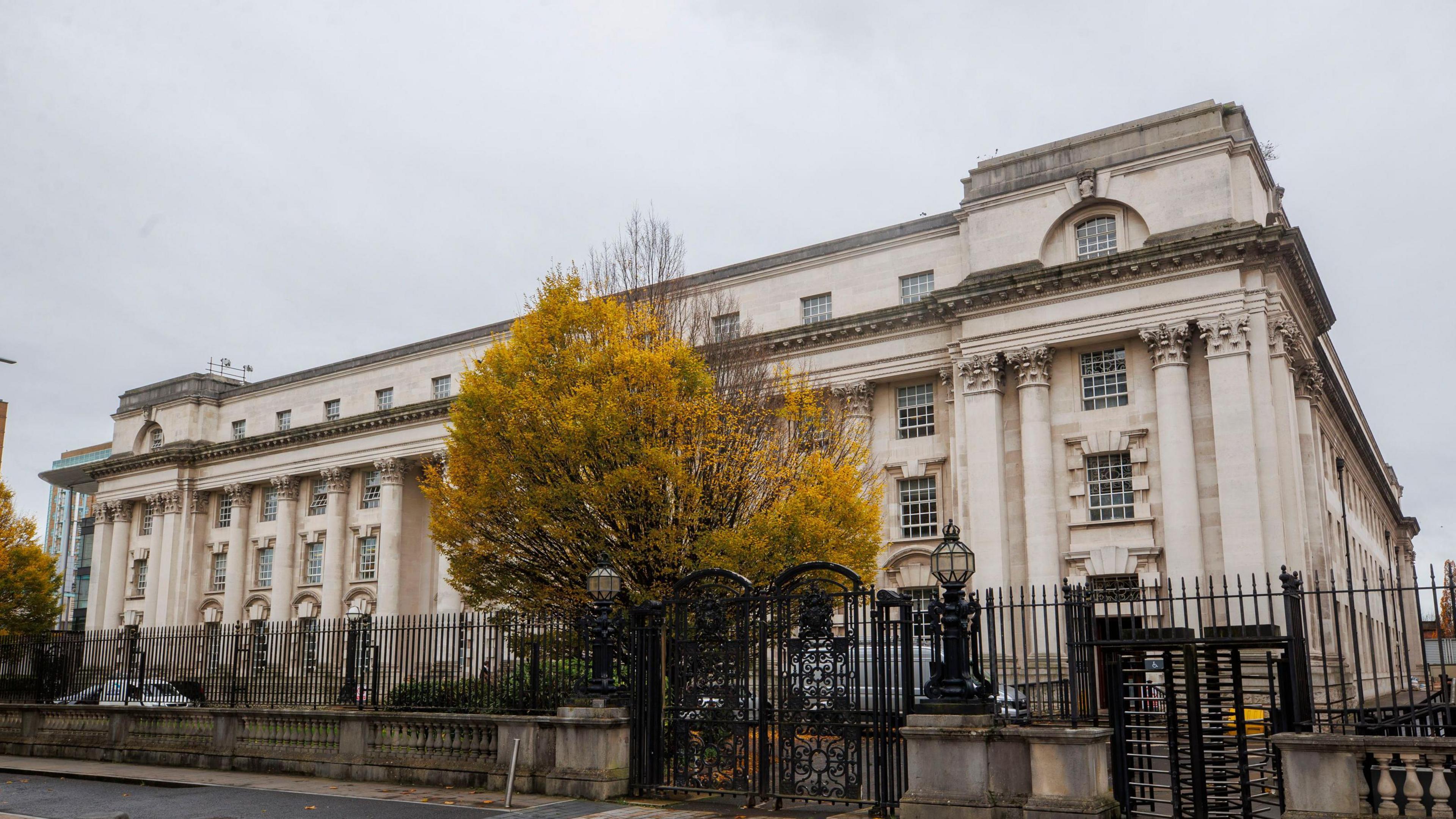PSNI to pay widow settlement after keeping husband's body parts

On Thursday the Belfast High Court heard that the action was settled on confidential terms and no admission of liability was made
- Published
The Police Service of Northern Ireland (PSNI) will pay a widow a settlement after parts of her husband's body were kept without permission.
According to her solicitor, Kathleen Keelan, whose husband James was killed by loyalist paramilitaries in north Belfast in June 1987, is set to receive thousands of pounds.
Mrs Keelan, took a case against the PSNI for alleged negligence and breaching statutory duty in removing and keeping her husband's skull and other samples without permission.
On Thursday, the Belfast High Court heard that the action was settled on confidential terms and no admission of liability was made.
What was revealed in 2012?
In 2012 a UK-wide police force audit revealed that the PSNI kept human tissue and body parts from suspicious and unexplained deaths without notifying relatives.
At the time, Chief Constable Matt Baggot said police kept 71 tissue samples relating to 63 individuals. Twenty-three of those related to the Troubles.
The PSNI said the body parts were retained as part of investigations between 1960 and 2005 and could include skulls and organs.
'Gruesome reality'
Outside court, Mrs Keelan's legal representatives said the PSNI has agreed to pay her "a five-figure sum in damages".
Solicitor Kevin Winters of KRW Law said: "State agencies hiving off the body parts of murder victims is macabre and abhorrent".
Mr Winters also called for a review into what he claimed was part of a wider practice carried out by police and other agencies.
"Their grief ought not to be compounded by having to live with the gruesome reality that their family member had bits of their body removed without their knowledge."
In a statement, the PSNI confirmed it settled the civil action, but said the "terms of the settlement are confidential and out of respect for those involved, we will not publicly discuss or comment on the specifics of the case".
- Published21 May 2012
- Published15 May 2012
- Published16 May 2012